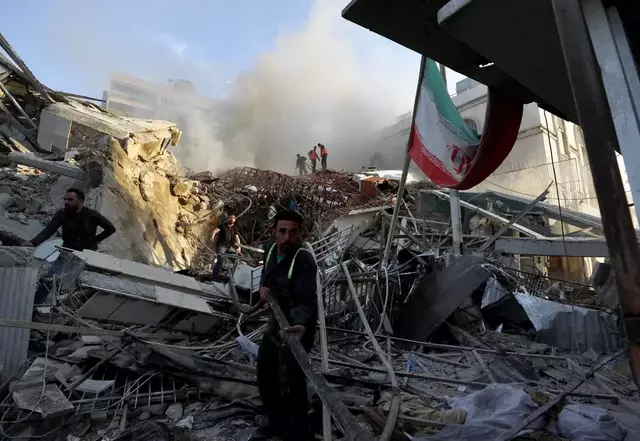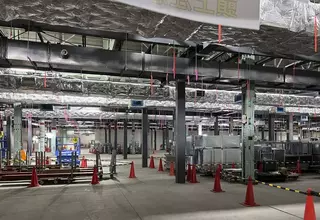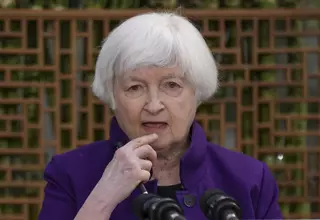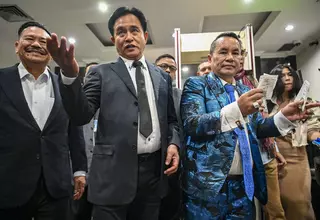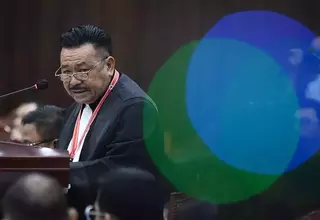Ceria Project Brightening the Future for Malaka's Children
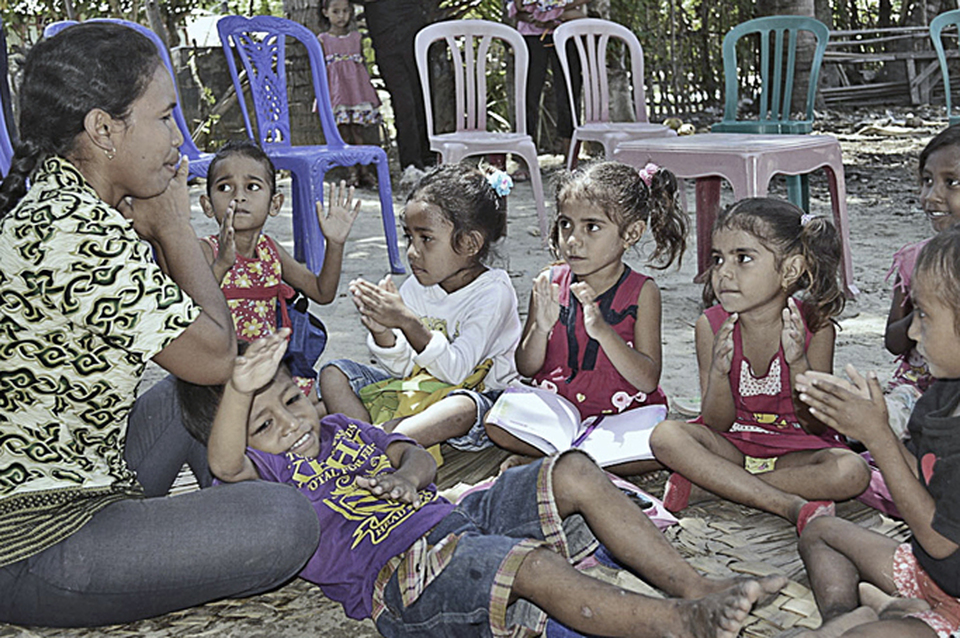
When Indonesians hear the word "Malaka," we often think of the Malaysian state, Malacca. Few of us know that Malaka is indeed one of the newest districts in the archipelago.
"The district is located on the border between Indonesia and Timor-Leste," said Tatak Ujiyati, advocacy and campaign director of Save the Children, a nongovernmental organization that aims to improve children's lives.
The 1,160-square-kilometer region, which used to be part of Belu district in East Nusa Tenggara province, was severely underdeveloped, spurring the government to establish Malaka as its own district in December 2012 in order to precipitate development programs in the region.
Malaka is currently home to some 186,000 people who "chose to become Indonesian citizens during the East Timor referendum [in 1999]," Tatak said.
But despite the area's new status, life hasn't improved much for the residents of Malaka.
The people there, like many across East Nusa Tenggara, suffer from the land's harsh natural conditions.
The region is arid during the long, dry season, resulting in a severe lack of fresh water between March and November. The wet season, however, brings with it devastating floods and landslides.
Malaka's remote location also makes it difficult for rescue operators to reach the area.
"It's a 10-hour drive from Kupang [the capital of East Nusa Tenggara] to Malaka," Tatak said.
The distance has also left its people, most of them farmers, mired in poverty. But despite these harsh conditions, the parents of Malaka still hope for a better future for their children.
Ceria
The district has 15 elementary schools that are brimming with enthusiastic children, many of whom must walk several kilometers from their homes to get to class.
"It touches my heart when these children sing 'Indonesia Raya' [Indonesia's national anthem]," Tatak said. "They sing the song from the heart, their bare and callused feet firmly planted on the ground."
Few of these children can afford shoes to go to school.
Their ramshackle classrooms, meanwhile, have crumbling walls and dilapidated roofs, exposing the children to the elements. Most schools have no running water.
Yet each day, the children arrive at these makeshift places of learning with bright smiles on their faces.
Once the lessons start, however, students are faced with yet another challenge: the language barrier.
"Many of them don't speak Indonesian, so it's difficult for them to understand the lessons," Tatak said, explaining that the people of Malaka use five local languages representing the region's indigenous tribes.
And because personal hygiene is not promoted, the younger children "often fall ill and miss school."
As a result, many students in the lower grades often fail their studies.
"And research shows that if young children fail at these levels, they'll also tend to fail at the subsequent levels," Tatak said.
STC believes early childhood education is the answer.
"During preschool, teachers should be able to teach children the Indonesian language and foster good habits to promote better hygiene," said Lusi Margiyani, STC's education adviser.
Malaka is not completely void of early childhood centers, with a dozen scattered across the district, "but they're all makeshift preschools, with learning taking place on the verandahs of people's homes."
Furthermore, the "teachers" are usually volunteers. And without any formal training or even the slightest knowledge of early childhood education, they merely supervise the children as they play, Lusi said.
"The teachers should be able to teach these kids useful skills and instill healthy habits in them," she added.
The early stages of development that take place between birth and the age of 5 are what educators dub the "golden years," during which children rapidly and naturally absorb everything in their surroundings ̶ including language and practical skills.
"What and how we teach the children at these ages will have a lasting impact throughout their lives," Lusi said.
With the aim of improving Malaka's education system, particularly for early childhood, STC is working with H&M Conscious Foundation, an independent organization set up by the Swedish fast-fashion retailer H&M, to build schools and preschool centers in the district.
Established in 2007 by the family of H&M’s founder, Stefan Persson, the H&M Conscious Foundation seeks to improve children's education, empower women and provide clean water access in developing countries.
"As of 2013, we've gathered a total $ 150 million to conduct various humanity projects around the world," said Karina Soegarda, the PR officer at H&M Indonesia.
For Indonesia, the foundation teamed up with STC to launch the Children in Early Grades Reach Incredible Achievements (Ceria) project. Together, they aim to build 15 new preschools and renovate the 15 existing elementary schools in Malaka.
"Some of the people in Malaka have donated their own land for us to build the preschools," Lusi said.
Each early childhood education center will offer two classes that can each accommodate 20 to 30 students.
Some of the elementary schools, which began renovations last year, are now in the final stages of refurbishment.
"We expect them to be fully operational this year," Lusi said, adding that the project would build toilet facilities and provide running water for each school.
Taking their efforts one step further, Ceria also offers teacher training programs.
"We offer free training for the teachers to improve their skills and knowledge," Lusi said. "[The teachers] have participated enthusiastically. It shows that they are willing to learn and work hard; they have just been lacking the opportunity."
The program, which will conclude in 2017, is expected to benefit Malaka's 2,400 elementary school students, 450 preschoolers and 180 primary and preschool teachers.
"At the end of the project, we will review it to consider whether we need to continue our efforts in Malaka or move on to another district," said H&M's Karina.
"We hope the project will become a benchmark and trigger the local community in Malaka to provide a good education for their children," Lusi said.
For more information on Save the Children and the Ceria project, check out savethechildren.or.id.
The Peak
POPULAR READS
Nissan to Make Next-Generation EV Batteries by Early 2029
Solid-state batteries are widely seen as the next step for EVs.Airlangga Set to Extend Leadership in Golkar After Election Success
Under his leadership, Golkar rose to the second position in the legislative polls and successfully made Gibran the elected vice president.Yellen Says Iran's Actions Could Cause Global 'Economic Spillovers'
Iran's missile attack on Israel early Sunday came in response to what it says was an Israeli strike on Iran's consulate in Syria.Takeaways from Prabowo's Responses to Legal Motion Contesting His Election Win
Part of the argument addresses the claim that the candidacy of Gibran Rakabuming Raka, Prabowo’s running mate, is unlawful.Prabowo Camp Cites ‘Procedural Error’ in Legal Challenge by Rival Candidates
The Constitutional Court's main task is to address alleged discrepancies in vote tallies, which neither of the plaintiffs challenged.Popular Tag
Most Popular
